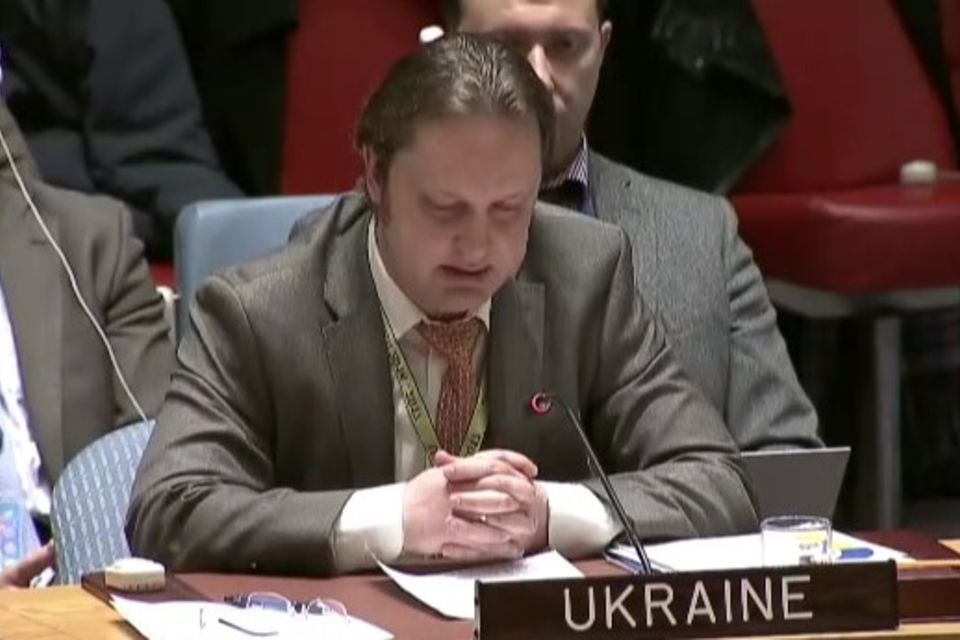Statement by the delegation of Ukraine at the UN Security Council meeting on the humanitarian situation in Syria

Check against delivery
Statement by the delegation of Ukraine at the UN Security Council meeting on the humanitarian situation in Syria
(August 22, 2016)
1. I would like to start today by condemning in the strongest terms the terrorist attack in Gaziantep and expressing our sincere condolences and solidarity with the people of Turkey.
2. The latest Secretary-General’s report, as usual, does not leave much room for optimism. We continue to see the same bunch of horrors and breaches of commitments. The image of Omran Daqneesh, a little boy in Aleppo who managed to escape death from the rain of shellings and bombs, launched by the Russian or Syrian regimes, is going to haunt us all as a sign of our collective failure to bring peace to Syria and prevent the unfolding tragedy in Aleppo.
3. According to the Syrian Observatory for Human Rights monitoring group 233 civilians including 142 children were killed in indiscriminate exchanges of fire between rebels and government forces in the first two weeks of August. It is impossible to comprehend that the Syrian government continues to bomb its citizens. Mr. Assad is just keeping Syrian people hostage to his own and allies’ plans to change the equation on the ground. How long can we allow the Syrian regime to kill its own people in the name of fighting the terrorists?
4. The deteriorating security environment in Syria continues to negatively impact the humanitarian situation. Military activities, airstrikes, shellings go unabated on all active fronts of Syrian battlefield — Aleppo, Idlib, Rif Dimashq, Homs, Hama. It all results in further increase of a number of people living in besieged and hard-to-reach areas. Therefore, we welcome the efforts exerted to alleviate the situation, particularly the resumption and due functioning of the border crossing Al-Ramtha on the Jordanian — Syrian border.
5. We are increasingly alarmed by the reports on the extensive use of incendiary weapons by Russia. Especially revealing was the report published by the Human Rights Watch on August 16, according to which these devastating weapons were used at least 18 times over the past 9 weeks including recent attacks on the opposition-held areas in Aleppo and Idlib on August 7th. There is no shortage of proof with regard to the use of incendiary weapons by the Russian Federation forces in Syria (It had been amply demonstrated during a broadcast on the Russia Today channel on June 18, which showed the RBK-500 ZAB series munitions mounted on the SU-34 fighter aircraft at the Hmeymim base. We all know that only the Russian Federation operates this type of aircraft in Syria).
6. It is extremely alarming to see that instead of focusing on the way to mitigate the hostilities and revitalize the nation-wide ceasefire we see the Russian Federation moving new type of arms and bomb carriers to bases in a closer proximity to Syria. It can hardly be interpreted by the opposition circles neither as a confidence-building measure nor as a signal that the circumstances are conducive to come back to the negotiations table. We are also concerned over the cruise missiles` strikes committed by the Russian Black Sea fleet warships from the waters of the Mediterranean at targets near Aleppo on the 20-th of August. The efficiency of these strikes can be easily put under question because it is yet unknown if the militants from “Jabhat Fatah al-Sham” were targeted or those who are considered to be members of the “moderate opposition” were also afflicted. We wish the Russian side could provide the UN SC with official reports on the named military operations in Syria.
7. We join the UN and our colleagues in calling on all parties to the conflict to immediately provide unconditional, unimpeded and sustained access to the people in besieged and hard-to-reach areas across Syria. We support the UN-led efforts to impose a 48-hours pause in fighting in Aleppo province. It needs to be stressed that this pause is not a window of opportunity for the regime and its allies to regroup its forces, but a vital opportunity for the humanitarian relief to get to the population of Aleppo. The decision of Special Envoy De Mistura to adjourn the ISSG Humanitarian Task Force in Geneva on August 18 is a strong signal of concern in this respect.
